As winter sets in, homeowners often face an unexpected and unpleasant challenge: sewer gas smells in the house. This issue, especially noticeable during colder weather months, can disrupt living comfort while raising health and safety concerns. Understanding why and addressing any causes behind such smells are critical to live in an odor-free home this season.
The experts at Roto-Rooter Mobile will walk you through the steps to identify, prevent, and eliminate sewer gas smells in winter, ensuring your home remains a welcoming and pleasant refuge in the colder months.
Understanding Sewer Gas
What is Sewer Gas?
Sewer gas is a mix of toxic and non-toxic gasses emitted by your household plumbing system, often including hydrogen sulfide, ammonia, methane, and carbon dioxide, creating the distinctive foul odor often associated with rotten eggs.
Health Implications
Exposure to sewer gas in small quantities may not be immediately harmful, but prolonged exposure can lead to headaches, dizziness, respiratory problems, and, in extreme cases, asphyxiation. It’s therefore essential to address any sewer gas smell in your house in winter promptly.
Common Causes of Sewer Gas Smell in Winter
Lack of Ventilation
During winter, homes are often sealed tightly, reducing natural air circulation. This lack of ventilation can cause sewer gas that might otherwise dissipate unnoticed to become trapped and more apparent within your home.
Dry Plumbing Traps
Plumbing traps, designed to hold water and block sewer gasses, can dry out due to infrequent use of certain fixtures, such as guest bathrooms or utility sinks. This allows sewer gas to enter the home.
Cracks or Blockages
Cold temperatures can cause pipes to contract and sometimes crack or break, leading to leaks where sewer gas can escape. Additionally, blockages due to frozen pipes can also contribute to the buildup of sewer gasses.
Preventive Measures For Sewer Gas Smell In Winter
Regular Plumbing Maintenance
A robust approach to preventing sewer gas smells in your house is to embrace regular plumbing maintenance and therefore, sewer line repair in case of plumbing issues. This proactive strategy involves more than just fixing problems as they arise; it encompasses a systematic review of your entire plumbing system. Scheduling regular inspections can identify potential issues before they escalate. Key areas to focus on include:
- Inspecting Pipes for Cracks and Leaks: Regularly examine visible pipes for any signs of damage. Cracks or leaks can be gateways for sewer gasses to enter your home. Pay special attention to joints and bends in the piping, as these areas are more prone to wear and tear.
- Ensuring Proper Functioning of Fixtures: All plumbing fixtures should be checked to make sure they are operating correctly. Faucets, toilets, and showers that do not maintain a consistent water flow can contribute to dry traps, which fail to block sewer gasses.
Ensuring Adequate Ventilation
Maintaining good air quality in your home during winter is crucial. While it’s tempting to keep windows and doors tightly shut against the cold, doing so can trap unpleasant odors, including sewer gasses. To mitigate this:
- Periodic Ventilation: Make it a habit to open windows throughout the day to allow fresh air to circulate. Even a few minutes can make a significant difference in air quality and help disperse accumulated sewer gasses.
- Using Ventilation Fans: Install and use exhaust fans, particularly in high-moisture areas like bathrooms and kitchens. These fans can help in removing stale air and sewer gases from your home.
Keeping Water in All Plumbing Traps
Plumbing traps are designed to hold water to form a barrier against sewer gasses. However, in parts of your home that are not used frequently, the water in these traps can evaporate, especially in the dry air of winter, leading to the escape of sewer gasses. To prevent this:
- Regular Flushing: Make a routine of running water through all sinks, showers, and bathtubs periodically, especially in spaces that are infrequently used, like guest bathrooms or utility sinks. This practice replenishes the water in the traps, maintaining the barrier against sewer gasses.
Sealing and Insulating Pipes
The cold winter temperatures can cause plumbing pipes to contract and, in some cases, crack or split, leading to leaks and potential sewer gas emissions. To guard against this:
- Inspection for Insulation Needs: Examine your plumbing for any areas where insulation is lacking or has deteriorated. Pipes in unheated areas, such as basements and garages, are particularly susceptible to cold weather damage.
- Applying Proper Insulation: Use foam pipe insulation sleeves or wrap insulation tape around pipes to protect them from the cold. This not only helps prevent pipes from freezing and bursting but also reduces the chances of cracks forming through which sewer gas can escape.
Final Thoughts on Sewer Gas Prevention in Winter
Tackling the issue of sewer gas smells in your house during winter requires regular maintenance, adequate ventilation, vigilant care of plumbing traps, and proper insulation of pipes. By implementing these preventive measures, you can effectively safeguard your home against the discomfort and health risks associated with sewer gas. Remember, the key to a fresh, odor-free home during the colder months lies in proactive steps and timely intervention. Stay attentive to your home’s plumbing health, and enjoy a cozy, pleasant winter without the worry of sewer smells.
If you’re grappling with winter sewer smells, Roto-Rooter plumbers in Mobile, AL are ready to assist. Our experienced team offers practical solutions to identify and resolve sewer gas issues, ensuring your home stays fresh and odor-free. Contact us now!



